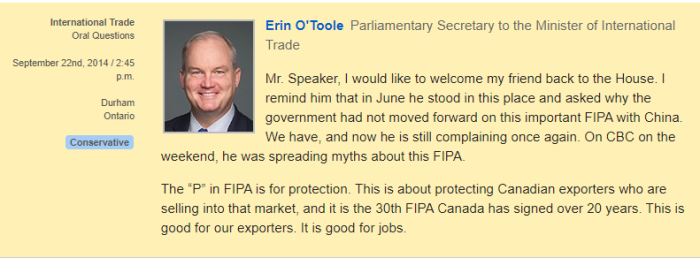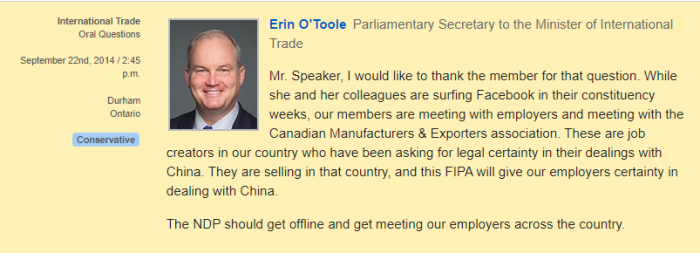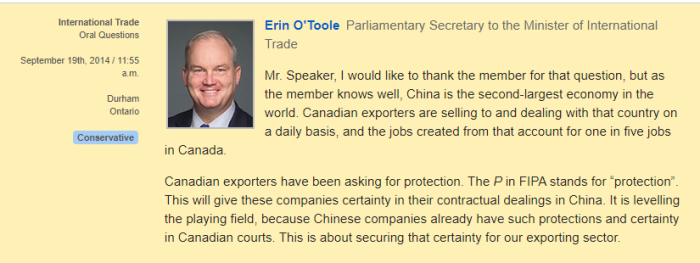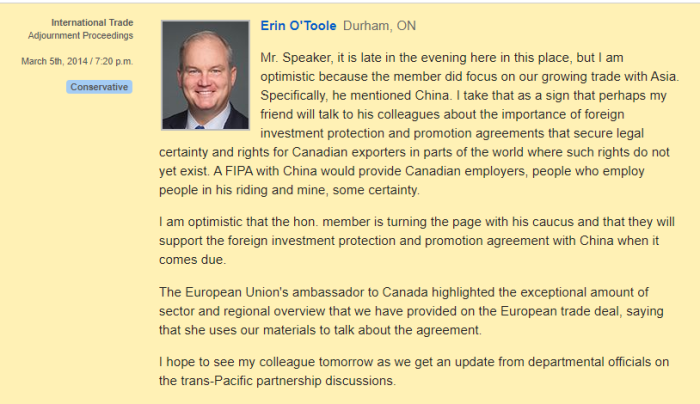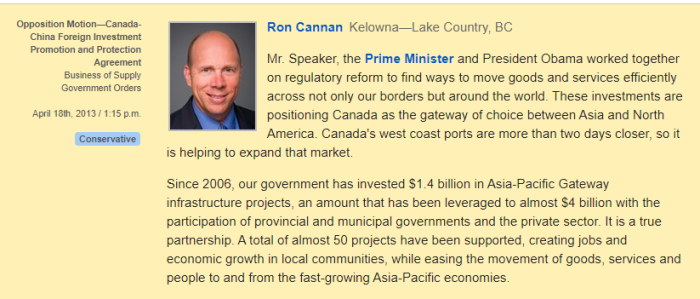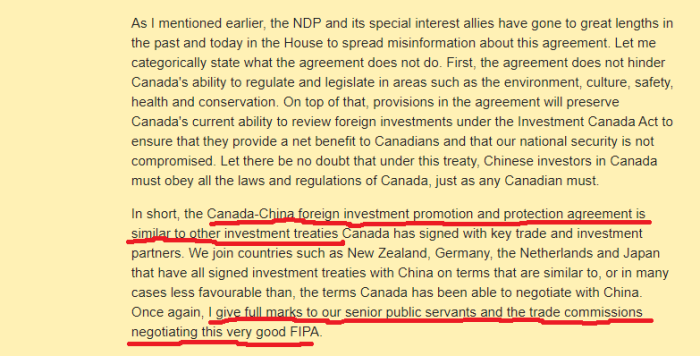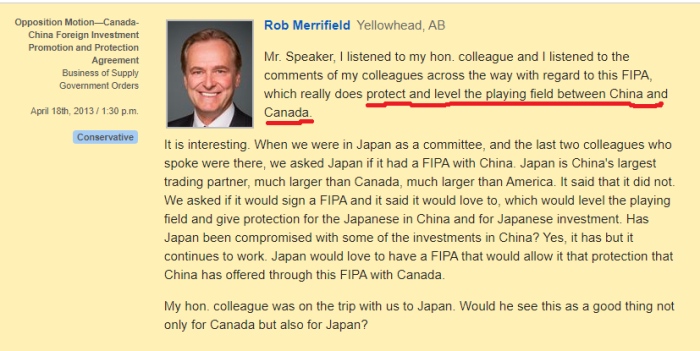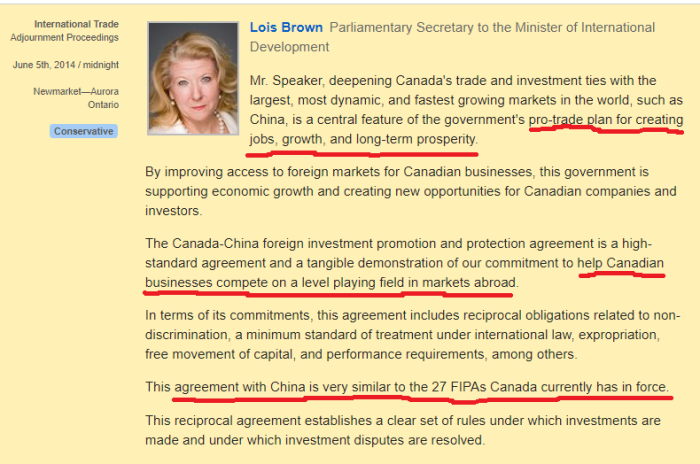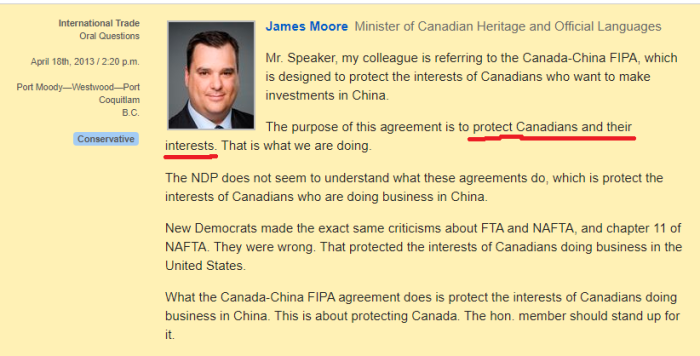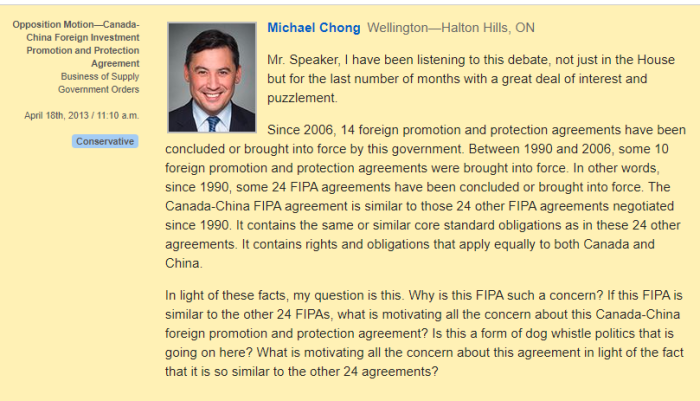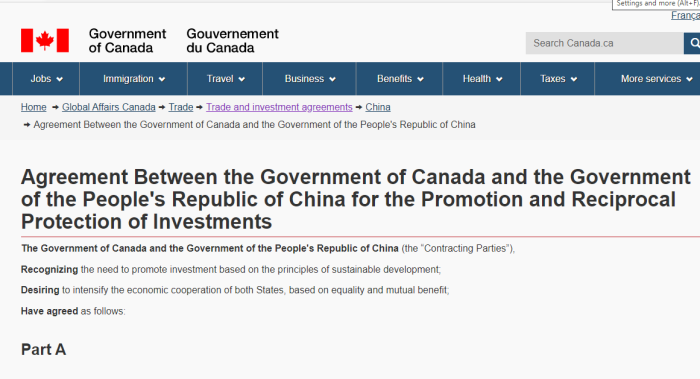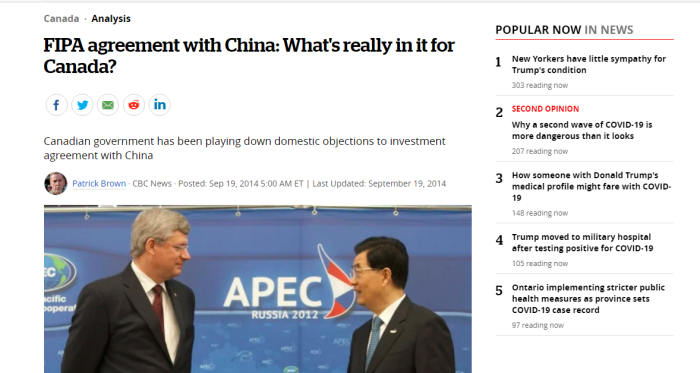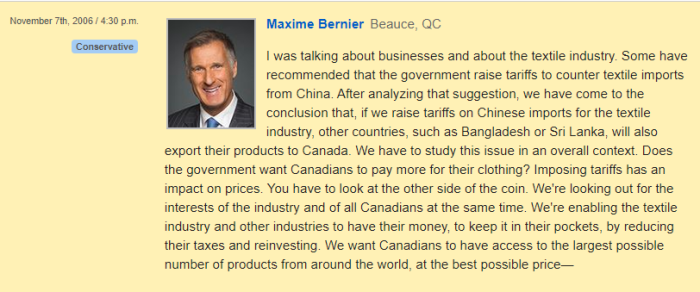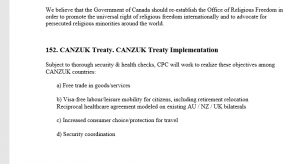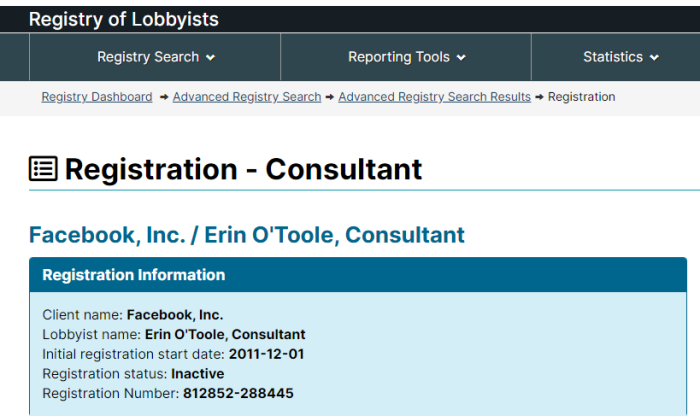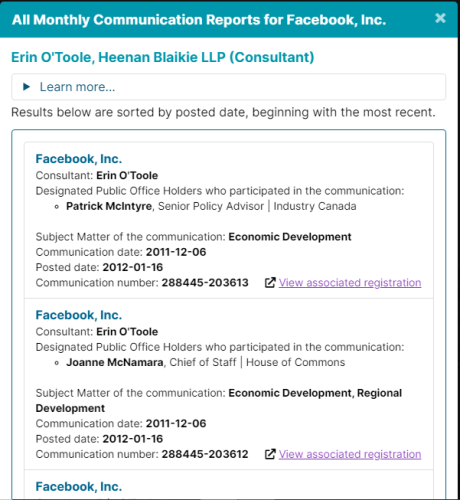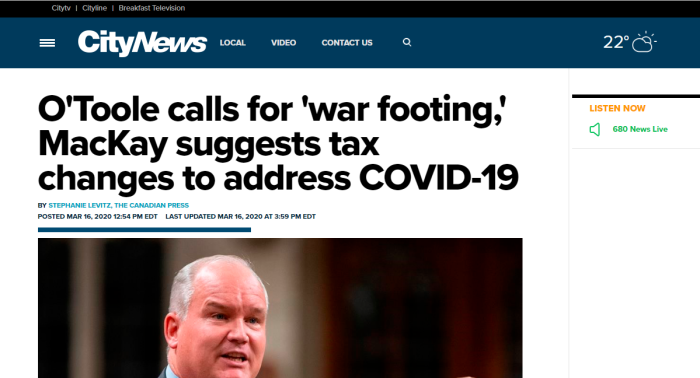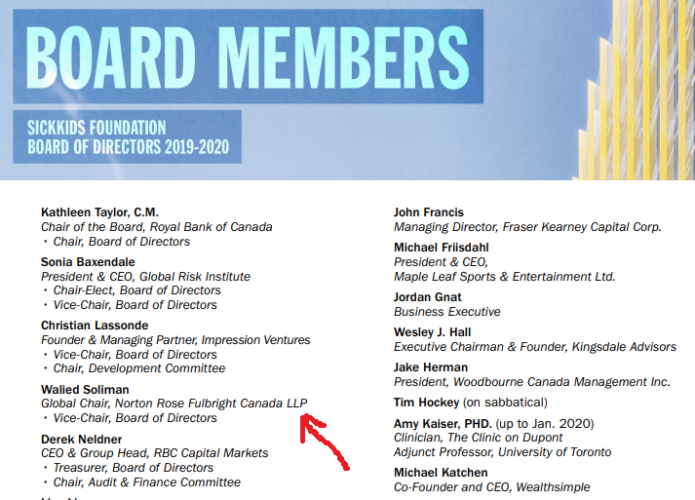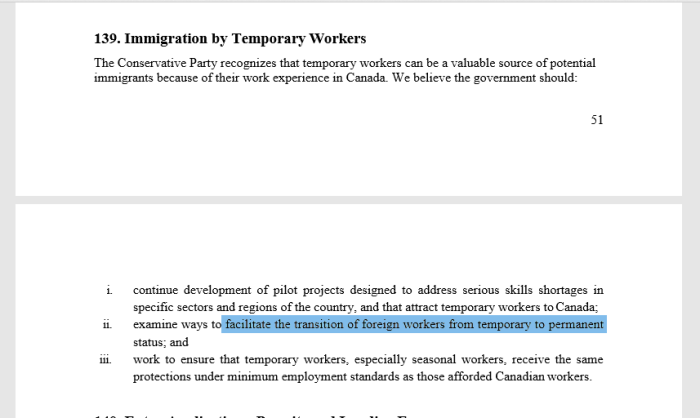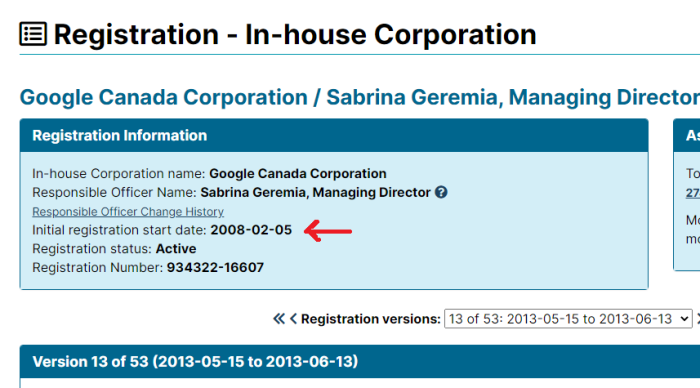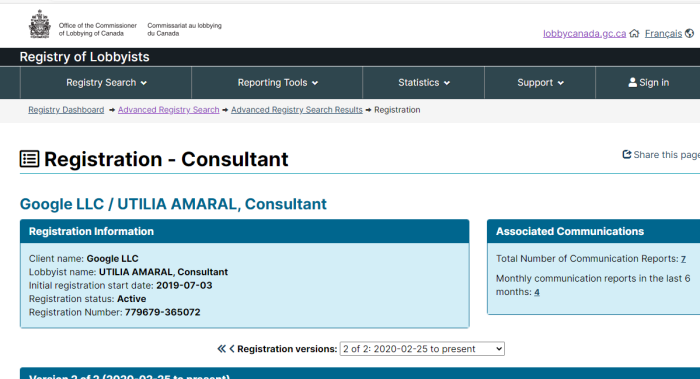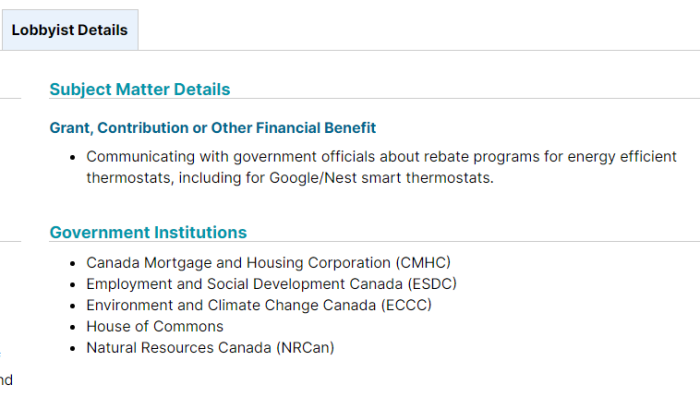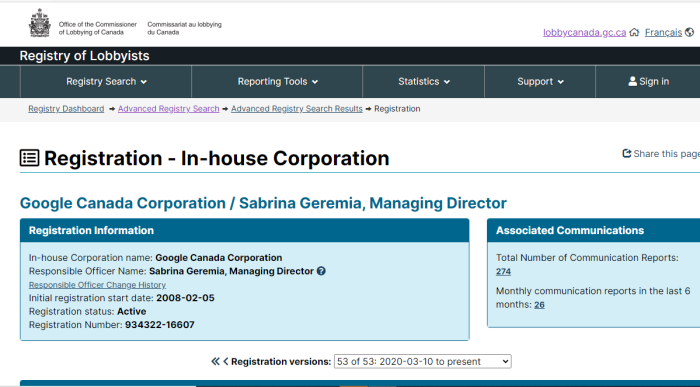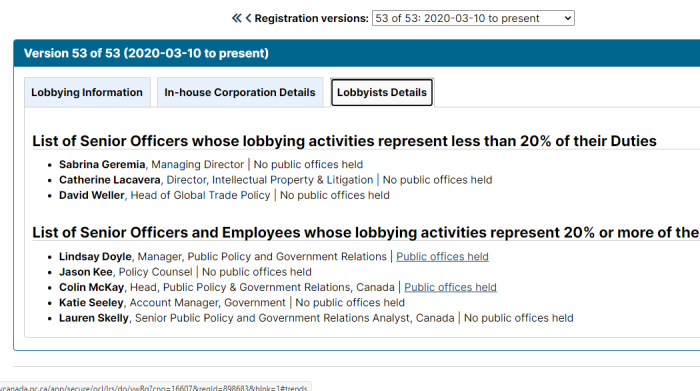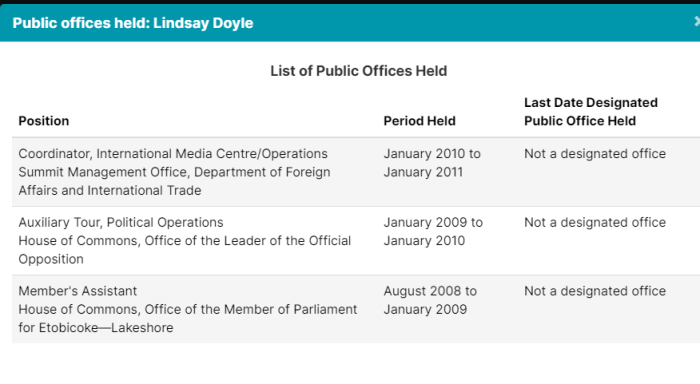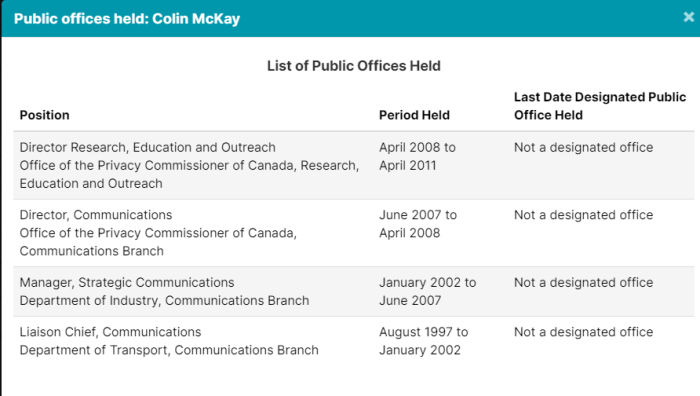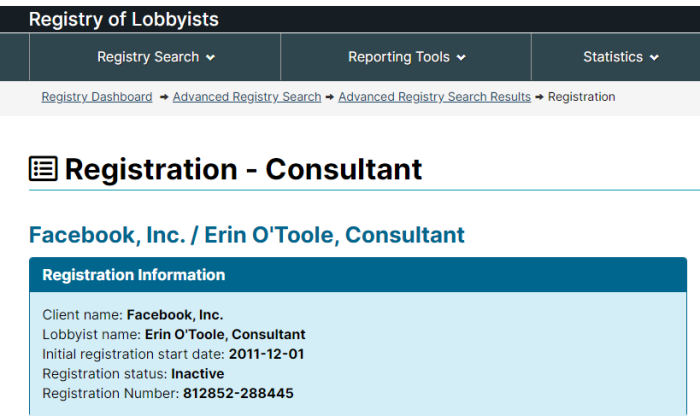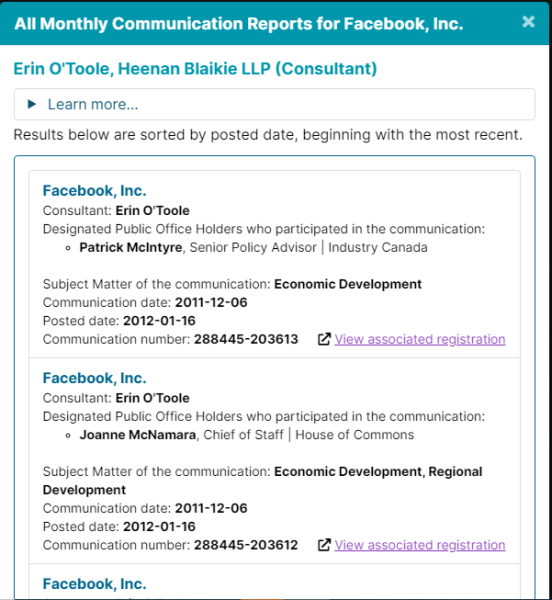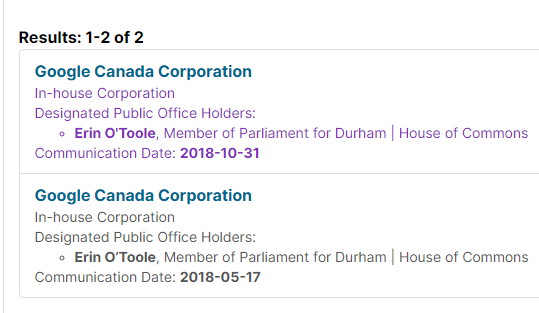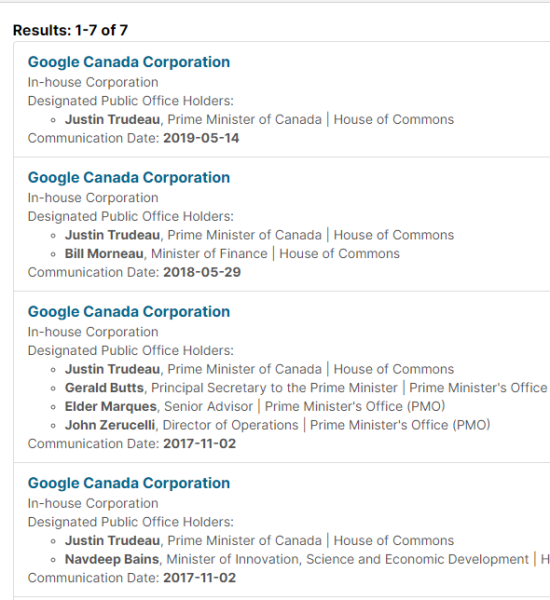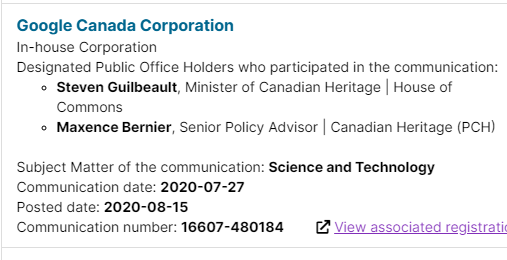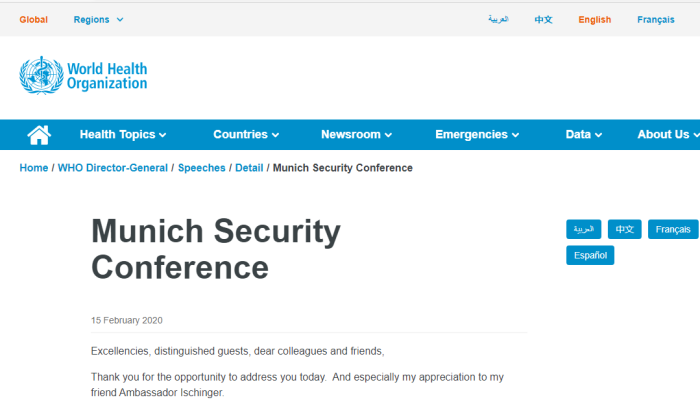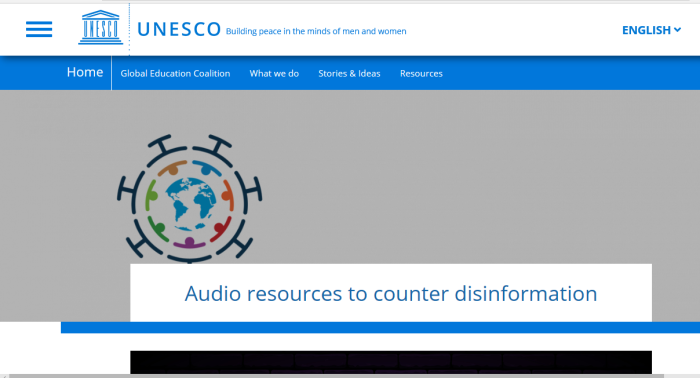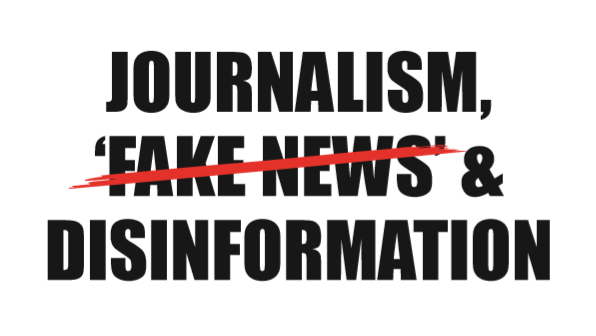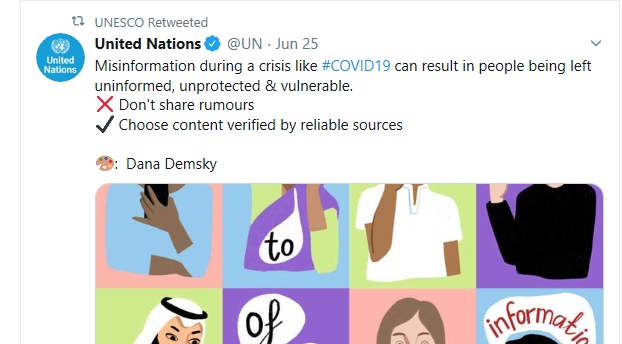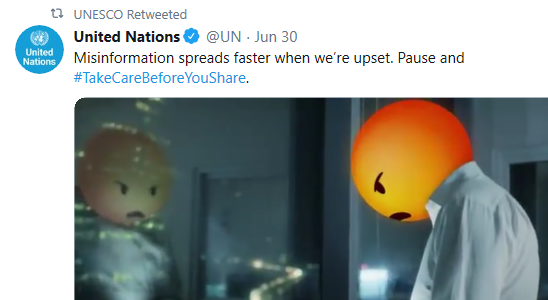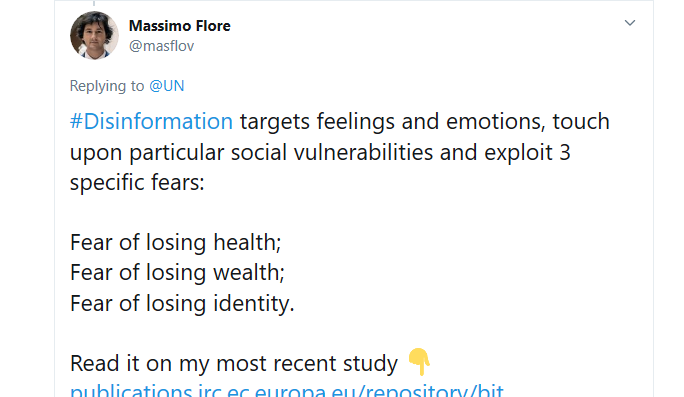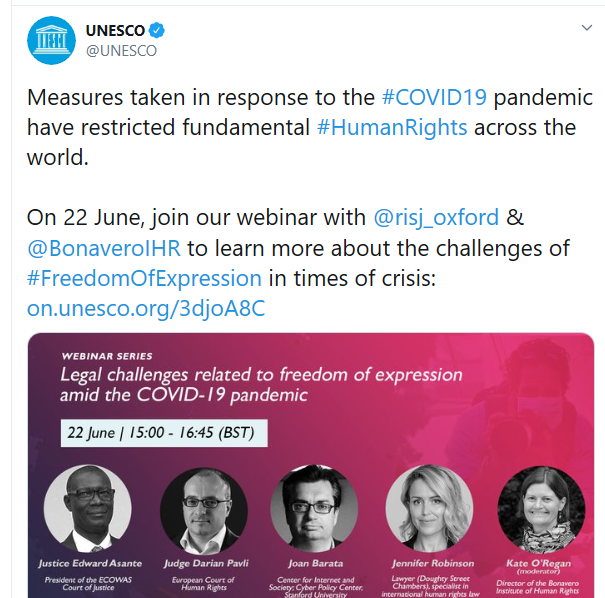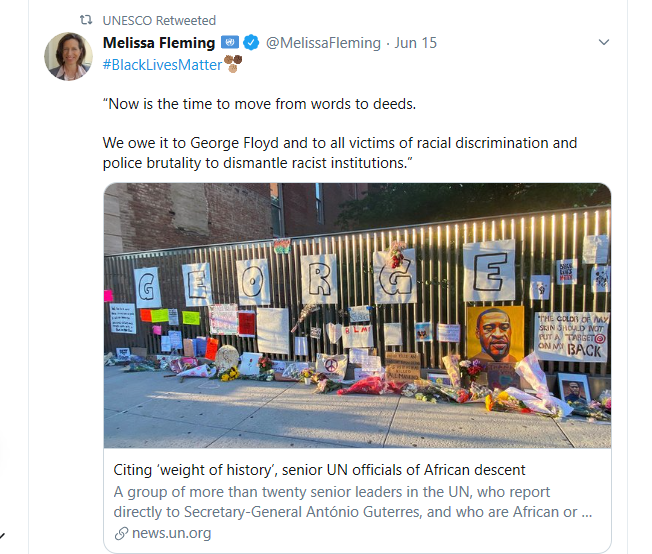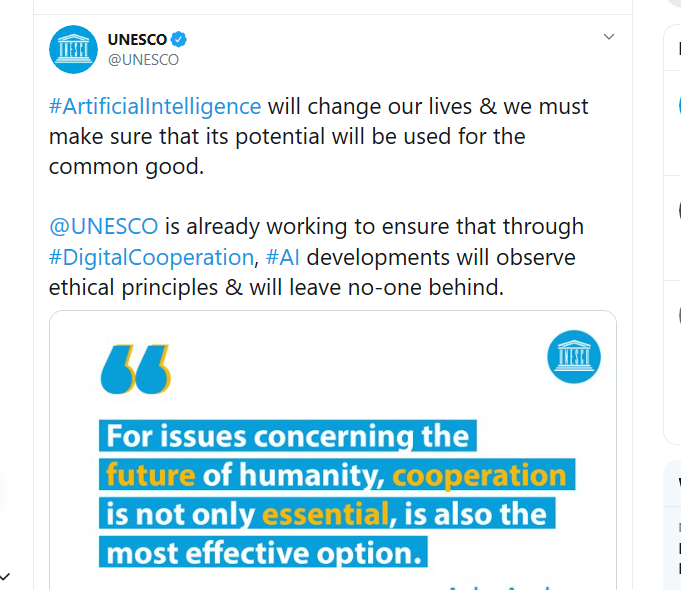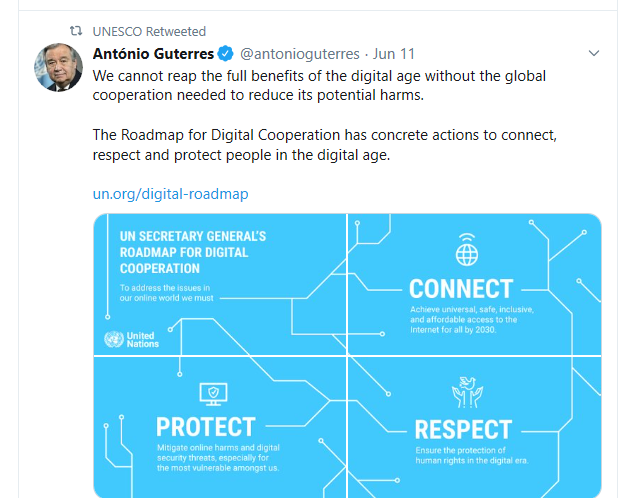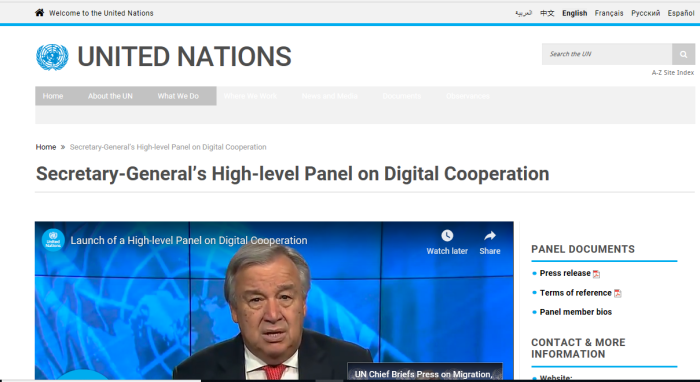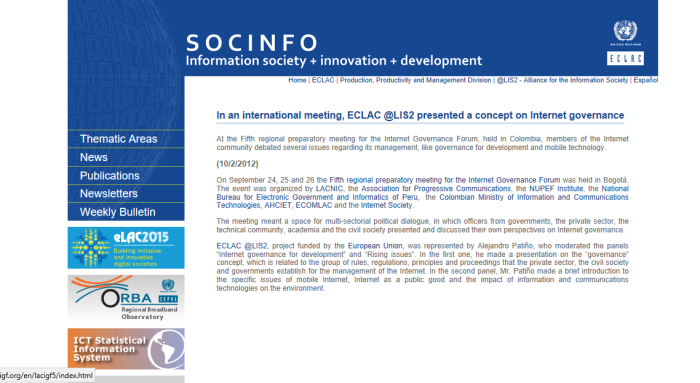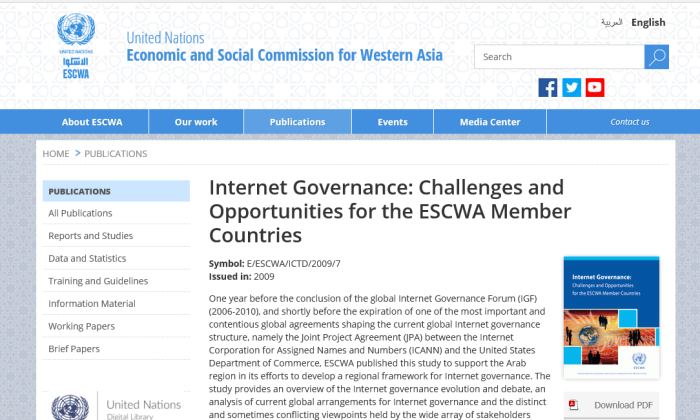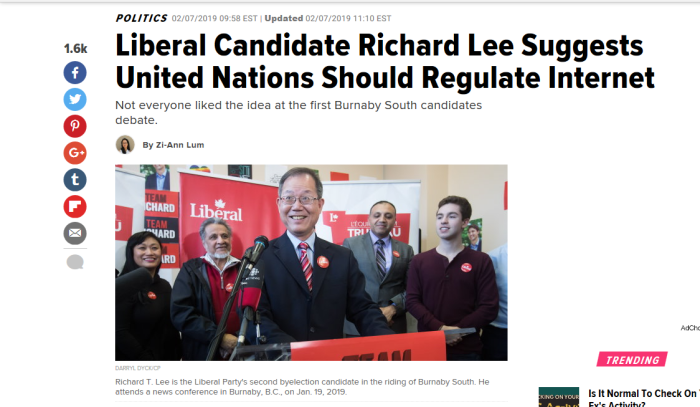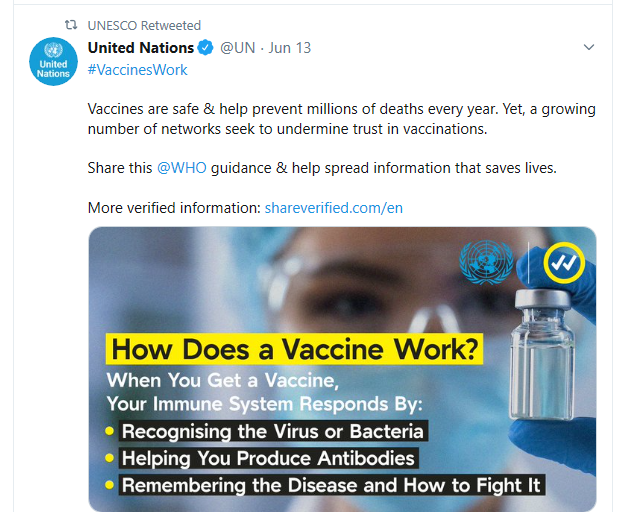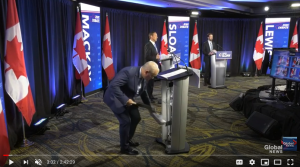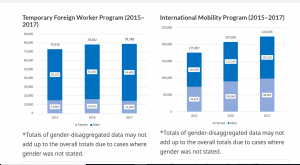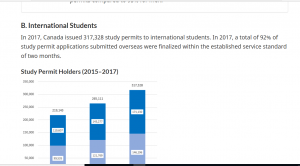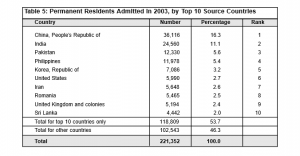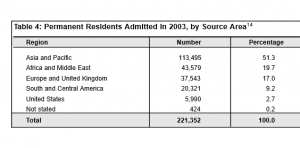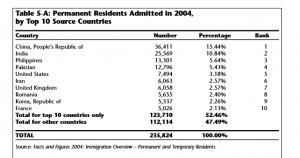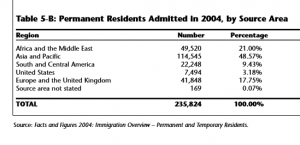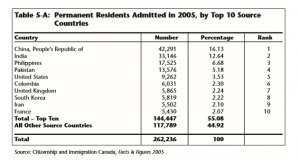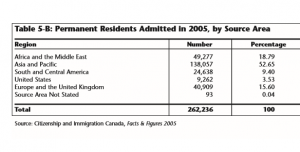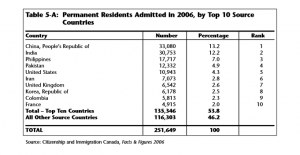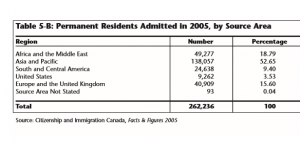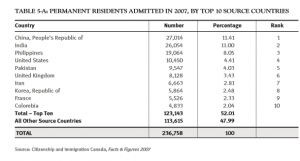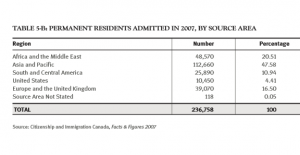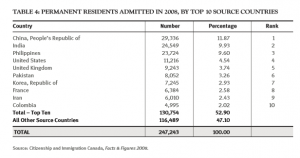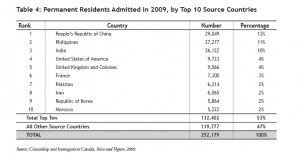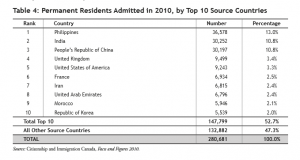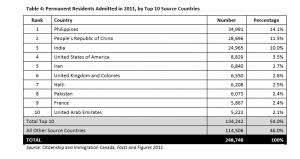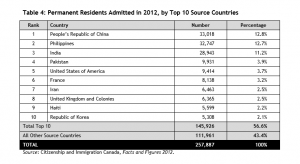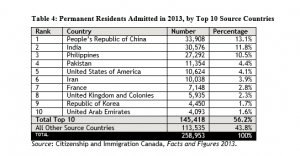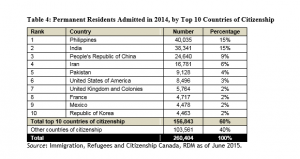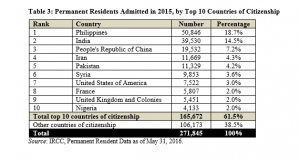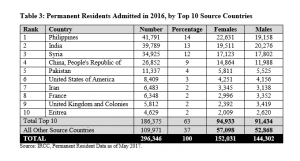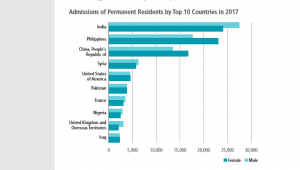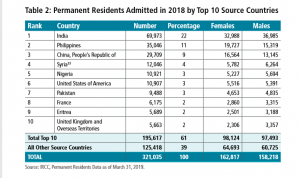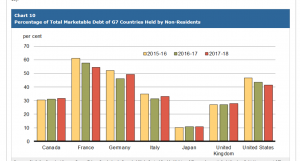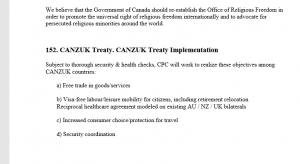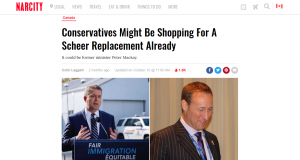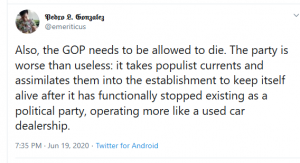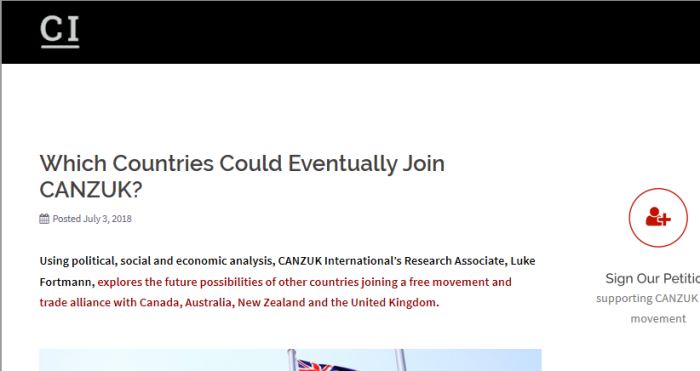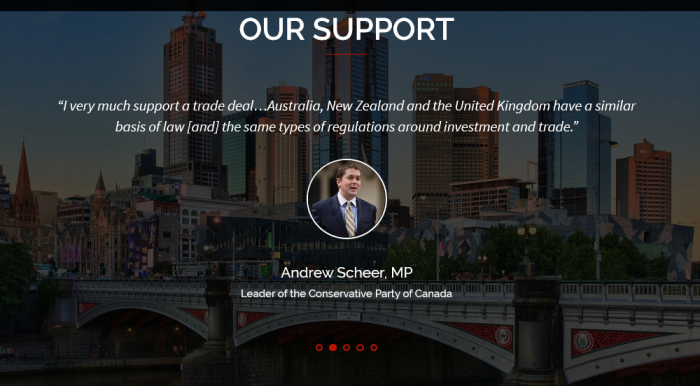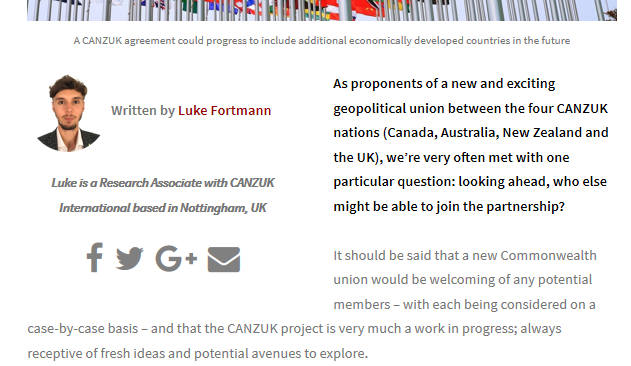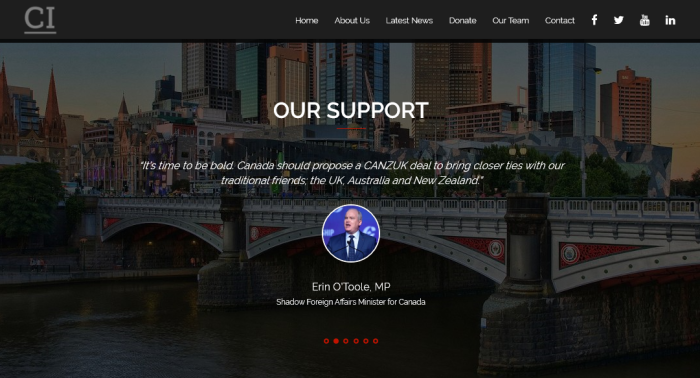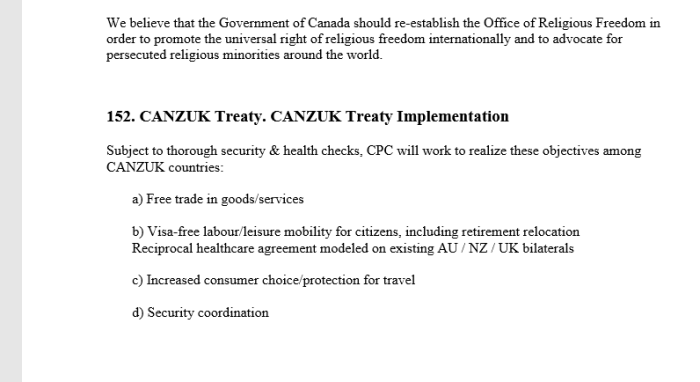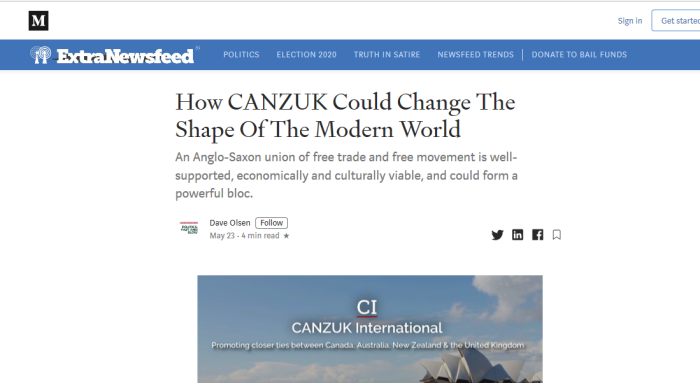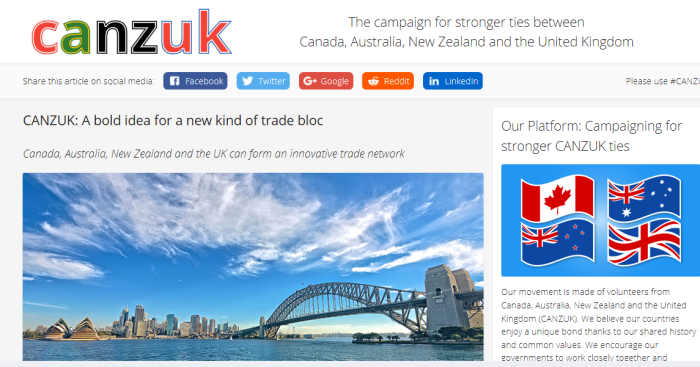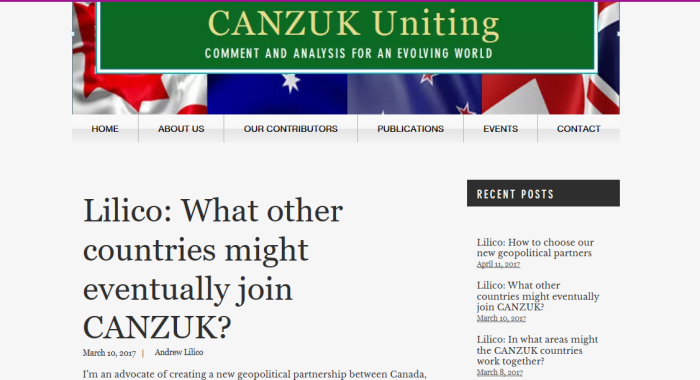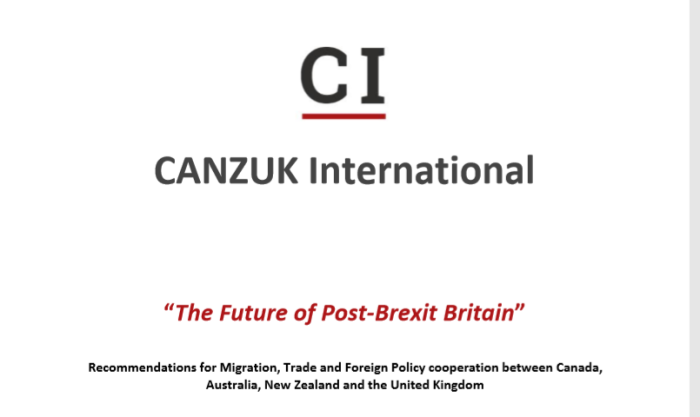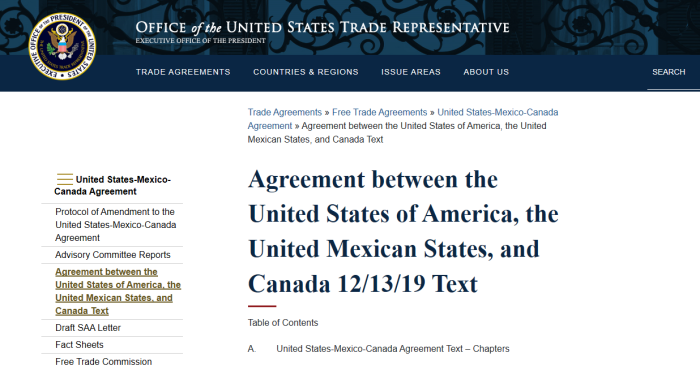
1. Offshoring, Globalization, Free Trade
The other posts on outsourcing/offshoring are available here. It focuses on the hidden costs and trade offs society as a whole has to make. Contrary to what many politicians and figures in the media claim, there are always costs to these kinds of agreement. These include: (a) job losses; (b) wages being driven down; (c) undercutting of local companies; (d) legal action by foreign entities; (e) industries being outsourced; and (f) losses to communities when major employers leave. Don’t believe the lies that these agreements are overwhelmingly beneficial to all.
2. Mass LEGAL Immigration In Canada
For much on efforts to replace the Canadian population, see here and see here. The scale which this goes on is quite mind blowing. Contrary to popular belief, mass LEGAL immigration is a much larger problem than the illegal kind, at least for now. That’s not to say that illegal crossings should be ignored.
3. Important Links
CLICK HERE, for USMCA on US Trade/Commerce site.
CLICK HERE, for ILO labour standards.
CLICK HERE, for SDGs that ILO is partnered with.
usmca.chapter.02.national.treatment
usmca.chapter.14.investments
usmca.chapter.16.temporary.entry
usmca.chapter.17.financial.services
usmca.chapter.20.intellectual.property
usmca.chapter.22.state.owned.enterprises
usmca.chapter.23.labour
usmca.chapter.24.environmental.regulations
usmca.chapter.26.competitiveness.committee
usmca.chapter.27.corruption
cpc.policy.declaration
4. Context For This Article
On July 1, 2020, the United States, Mexico & Canada Agreement (USMCA) replaced the North American Free Trade Agreement (NAFTA).
Some may wonder why this deal had to be replaced. However, upon reading the new treaty, it becomes clear that USMCA is far more reaching and covers areas which NAFTA didn’t. In short, this is not merely an alteration of NAFTA, but a new agreement which contains many more globalist provisions. This is far more than a trade agreement.
This review will not address all of the points of USMCA, just the more alarming or interesting ones.
5. National Treatment Provisions
Article 2.3: National Treatment
1. Each Party shall accord national treatment to the goods of another Party in accordance with Article III of the GATT 1994, including its interpretative notes, and to this end, Article III of the GATT 1994 and its interpretative notes are incorporated into and made part of this Agreement, mutatis mutandis.
.
2. The treatment to be accorded by a Party under paragraph 1 means, with respect to a regional level of government, treatment no less favorable than the most favorable treatment that regional level of government accords to any like, directly competitive, or substitutable goods, as the case may be, of the Party of which it forms a part.
Article 14.4: National Treatment
1. Each Party shall accord to investors of another Party treatment no less favorable than that it accords, in like circumstances, to its own investors with respect to the establishment, acquisition, expansion, management, conduct, operation, and sale or other disposition of investments in its territory.
.
2. Each Party shall accord to covered investments treatment no less favorable than that it accords, in like circumstances, to investments in its territory of its own investors with respect to the establishment, acquisition, expansion, management, conduct, operation, and sale or other disposition of investments.
Article 17.3: National Treatment
1. Each Party shall accord to investors of another Party treatment no less favorable than that it accords to its own investors, in like circumstances, with respect to the establishment, acquisition, expansion, management, conduct, operation, and sale or other disposition of financial institutions, and investments in financial institutions in its territory.
.
2. Each Party shall accord to financial institutions of another Party, and to investments of investors of another Party in financial institutions, treatment no less favorable than that it accords to its own financial institutions, and to investments of its own investors in financial institutions, in like circumstances, with respect to the establishment, acquisition, expansion, management, conduct, operation, and sale or other disposition of financial institutions and investments.
Article 20.8: National Treatment
1. In respect of all categories of intellectual property covered in this Chapter, each Party shall accord to nationals of another Party treatment no less favorable than it accords to its own nationals with regard to the protection of intellectual property rights.
So what’s the problem here? Why would it be wrong to enforce rules that ensure equal treatment between the parties?
Quite simply, it makes protecting your own industries and businesses illegal. In fact, the Canadian Government has been sued –successfully — in the 1990s. This was because NAFTA meant that we could no longer enforce things like environmental laws if they were bad for business.
Governments (should) take steps to ensure that people are able to have decent work in their communities. However, that becomes much harder when foreign companies can come in and undercut local merchants. This works in a similar way when mass migration creates downward pressure on wages.
While this may result in lower costs for good and services, there is a bigger picture to consider. Decimating communities that are dependent on a few big employers is not offset by having cheaper products at Walmart.
However, this concern for society becomes a thing of the past. Note: these provisions were in other trade deals as well such as NAFTA and the Trans-Pacific Partnership.
6. Ch #14: Investments And Corporations
Article 14.11: Senior Management and Boards of Directors
1. No Party shall require that an enterprise of that Party that is a covered investment appoint to senior management positions a natural person of a particular nationality.
.
2. A Party may require that a majority of the board of directors, or any committee thereof, of an enterprise of that Party that is a covered investment, be of a particular nationality, or resident in the territory of the Party, provided that the requirement does not materially impair the ability of the investor to exercise control over its investment.
While much of the chapter is okay, this is rather disturbing. The reason is that appointing foreigners to head a corporation (much like putting foreigners in government), leads to a conflict of interest. In order to ensure the well being of a company — and its employees — it’s important to have people loyal to the country in question.
Call it bigoted, but I don’t believe this dual loyalty can be resolved in a way that benefits society as a whole.
7. Ch #16: Temporary Entries Must Be Allowed
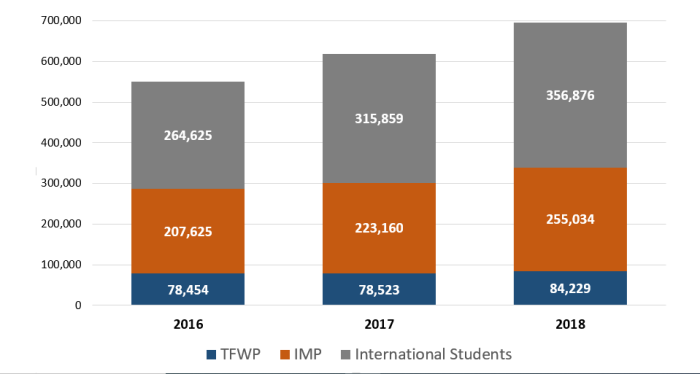
It has been discussed here many times how Canada is experiencing a flood of people coming under: (a) Temporary Foreign Worker Program; (b) International Mobility Program; (c) student visas; and (d) other programs. However, USMCA contains provisions in Chapter 16 for this to happen on an even bigger scale (at least regarding workers).
usmca.chapter.16.temporary.entry
Article 16.4: Grant of Temporary Entry
2. A Party may refuse to grant temporary entry or issue an immigration document authorizing employment to a business person where the temporary entry of that person might adversely affect:
.
(a) the settlement of a labor dispute that is in progress at the place or intended place of employment; or
.
(b) the employment of a person who is involved in that dispute.
Article 16.7: Dispute Settlement
1. A Party may not initiate proceedings under Article 31.5 (Commission Good Offices, Conciliation, and Mediation) regarding a refusal to grant temporary entry under this Chapter or a particular case arising under Article 16.3(1) unless:
.
(a) the matter involves a pattern of practice; and
.
(b) the business person has exhausted the available administrative remedies regarding the particular matter.
It should be pointed out there are a few good provisions in this chapter. These include not importing workers to cross picket lines, and limiting ability to challenge refusals. That being said, there are many bad provisions.
Article 16.2: Scope
1. This Chapter applies to measures affecting the temporary entry of business persons of a Party into the territory of another Party.
.
2. This Chapter does not apply to measures affecting natural persons seeking access to the employment market of another Party, nor does it apply to measures regarding citizenship, nationality, residence or employment on a permanent basis.
.
3. Nothing in this Agreement prevents a Party from applying measures to regulate the entry of natural persons of another Party into, or their temporary stay in, its territory, including those measures necessary to protect the integrity of, and to ensure the orderly movement of natural persons across, its borders, provided that those measures are not applied in a manner as to nullify or impair the benefits accruing to any Party under this Chapter.
While this sounds great in theory, the reality is that Canada offers many options to “temporary” workers and students to remain in the country much longer and work towards permanent residence. This just lowers the threshold for getting the foot in the door.
Article 16.5: Provision of Information
1. Further to Article 29.2 (Publication), each Party shall publish online or otherwise make publicly available explanatory material regarding the requirements for temporary entry under this Chapter that will enable a business person of another Party to become acquainted with them.
On the surface, nothing wrong with this. However, it is unsettling to publish or make available instructions for how to bring hordes of people into the country.
Article 16.6: Temporary Entry Working Group
1. The Parties hereby establish a Temporary Entry Working Group, comprising representatives of each Party, including representatives of immigration authorities.
.
2. The Working Group shall meet at least once each year to consider:
.
(a) the implementation and administration of this Chapter;
.
(b) the development of measures to further facilitate temporary entry of business persons on a reciprocal basis;
.
(c) the waiving of labor certification tests or procedures of similar effect for spouses of business persons who have been granted temporary entry for more than one year under Section B, C or D of Annex 16-A (Temporary Entry for Business Persons);
.
(d) proposed modifications of or additions to this Chapter; and
.
(e) issues of common interest related to the temporary entry of business persons, such as the use of technologies related to processing of applications, that can be further explored among the Parties in other fora.
While this is presented as a very limited admission for business, it makes it pretty clear that it include bringing spouses along, and can be modified to include other groups of workers. How difficult would it be to lower the requirements so that entry level workers can be added?
Looking at the list of “professionals” who qualify for temporary entry, one has to wonder how this will effect wages and job prospects of locals. After all, flooding the market with more workers (supply) has consequences to the wages (demand) of those already here.
A section of Chapter 17, specifically 17.5(1)(d)(iv), provides a loophole in that there are no limits to the number of employees a company may have. Theoretically, a company can have an almost endless number of workers who need to cross the border
1. No Party shall adopt or maintain with respect to:
(d) imposes a limitation on:
(iv) the total number of natural persons that may be employed in a particular financial service sector or that a financial institution or cross-border financial service supplier may employ and who are necessary for, and directly related to, the supply of a specific financial service in the form of numerical quotas or the requirement of an economic needs test; or
usmca.chapter.17.financial.services
Section 139 of the Conservative Party Policy Declaration promotes generating more pilot programs for mass migration, and converting “temps” to permanent residents where possible.
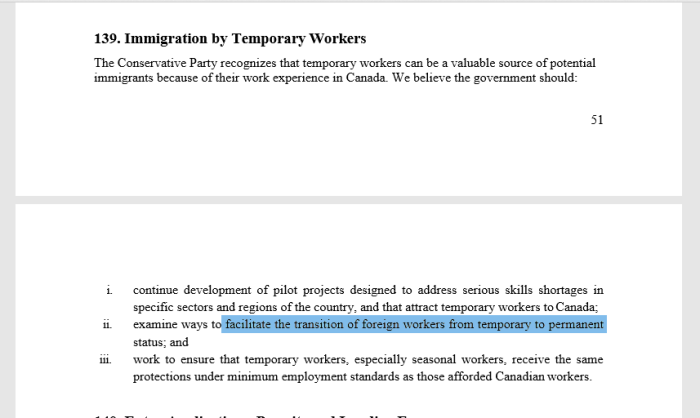
Section 152 of the Conservative Party Policy Declaration refers to CANZUK, an open border scheme that may be extended beyond just Canada, Australia, New Zealand, and the United Kingdom.
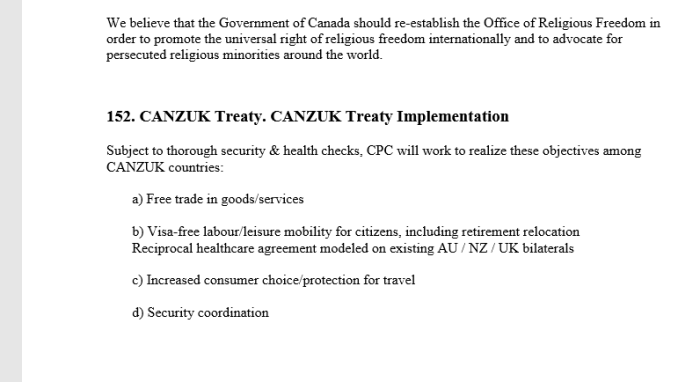
cpc.policy.declaration
In fact, once (almost) free movement is factored in alongside this free trade, it begins to look like a North American version of CANZUK. That of course is official CPC policy.
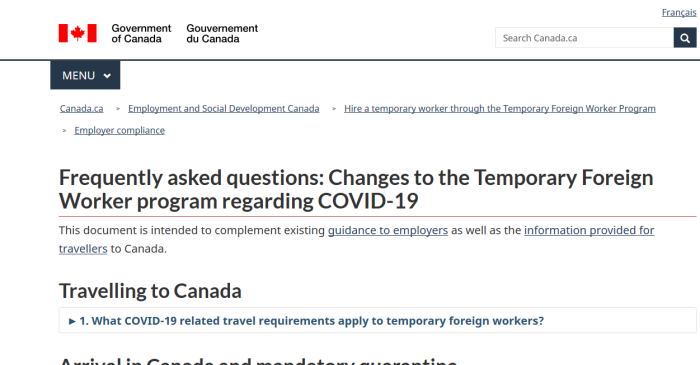
Of course, even when there is a fake pandemic, and millions of Canadians are unemployed, our government still finds it necessary to import hundreds of thousands of workers. Seriously, if the Government won’t protect Canadians’ jobs in a time like this, they won’t ever do it.
8. Ch #19: Social Media, Interactive Services
Article 19.17: Interactive Computer Services
1. The Parties recognize the importance of the promotion of interactive computer services, including for small and medium-sized enterprises, as vital to the growth of digital trade.
2. To that end, other than as provided in paragraph 4, no Party shall adopt or maintain measures that treat a supplier or user of an interactive computer service as an information content provider in determining liability for harms related to information stored, processed, transmitted, distributed, or made available by the service, except to the extent the supplier or user has, in whole or in part, created, or developed the information.
3. No Party shall impose liability on a supplier or user of an interactive computer service on account of:
(a) any action voluntarily taken in good faith by the supplier or user to restrict access to or availability of material that is accessible or available through its supply or use of the interactive computer services and that the supplier or user considers to be harmful or objectionable; or
(b) any action taken to enable or make available the technical means that enable an information content provider or other persons to restrict access to material that it considers to be harmful or objectionable.
Doesn’t look too good for protecting free speech and viewpoint diversity. No consequences for deplatforming people with dissident viewpoints.
9. Ch #20: Intellectual Property Rights
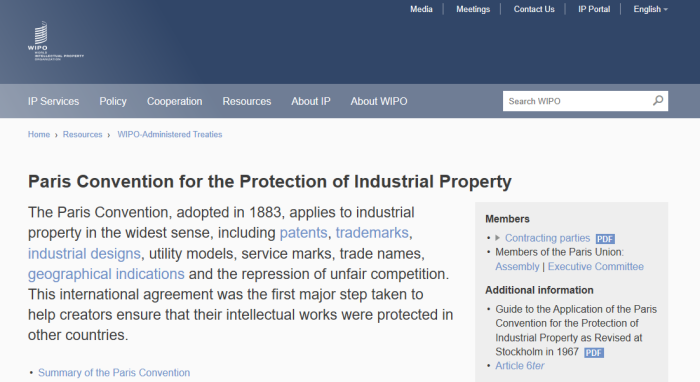
Article 20.7: International Agreements
1. Each Party affirms that it has ratified or acceded to the following agreements:
.
(a) Patent Cooperation Treaty, as amended on September 28, 1979, and modified on February 3, 1984;
.
(b) Paris Convention;
.
(c) Berne Convention;
.
(d) WCT; and
.
(e) WPPT
2. Each Party shall ratify or accede to each of the following agreements, if it is not already a party to that agreement, by the date of entry into force of this Agreement:
.
(a) Madrid Protocol;
.
(b) Budapest Treaty;
.
(c) Singapore Treaty;
.
(d) UPOV 1991;
.
(e) Hague Agreement; and
.
(f) Brussels Convention.
usmca.chapter.20.intellectual.property
This isn’t merely a trade agreement we have signed. It also forces to be committed to 11 different international treaties on intellectual property. Essentially, this is setting a global standard for I.P. In fairness, Canada is a party to many of them already. However, what will happen when people with Canadian patents are forced to compete with people holding similar patents elsewhere?
Considering that patenting genes and other biological material is already a reality, what will happen to health care currently available?
10. Ch #22: State Owned Enterprises
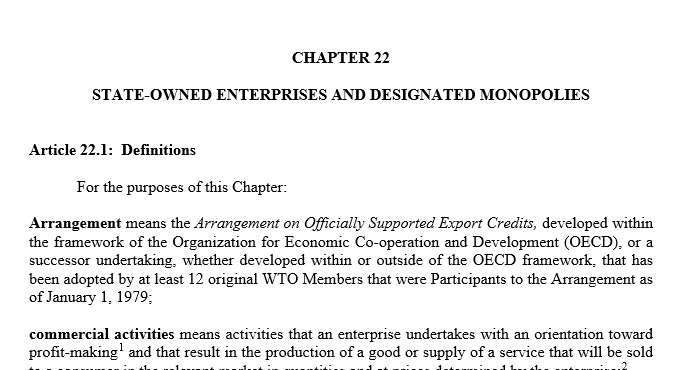
1. Each Party shall ensure that each of its state-owned enterprises, when engaging in commercial activities:
.
(a) acts in accordance with commercial considerations in its purchase or sale of a good or service, except to fulfil the terms of its public service mandate that are not inconsistent with subparagraphs (b) or (c)(ii);
.
(b) in its purchase of a good or service:
.
(i) accords to a good or service supplied by an enterprise of another Party treatment no less favorable than it accords to a like good or a like service supplied by enterprises of the Party, of any other Party or of a non-Party, and
.
(ii) accords to a good or service supplied by an enterprise that is a covered investment in the Party’s territory treatment no less favorable than it accords to a like good or a like service supplied by enterprises in the relevant market in the Party’s territory that are investments of investors of the Party, of another Party or of a non-Party; and
.
(c) in its sale of a good or service:
.
(i) accords to an enterprise of another Party treatment no less favorable than it accords to enterprises of the Party, of any other Party or of a non-Party, and
.
(ii) accords to an enterprise that is a covered investment in the Party’s territory treatment no less favorable than it accords to enterprises in the relevant market in the Party’s territory that are investments of investors of the Party, of another Party or of a non-Party
usmca.chapter.22.state.owned.enterprises
While this “sounds” okay, consider that state owned enterprises are typically funded by taxpayer dollars. They typically mean Crown Corporations and branches of the Government. Under the national treatment rules, these public groups will have to compete with foreigners, and treat them no worse. This comes despite the fact that foreigners don’t pay the taxes that keep them going. This is, in effect, a tax subsidy.
11. Ch #23: International Labour Org. (UN Group)
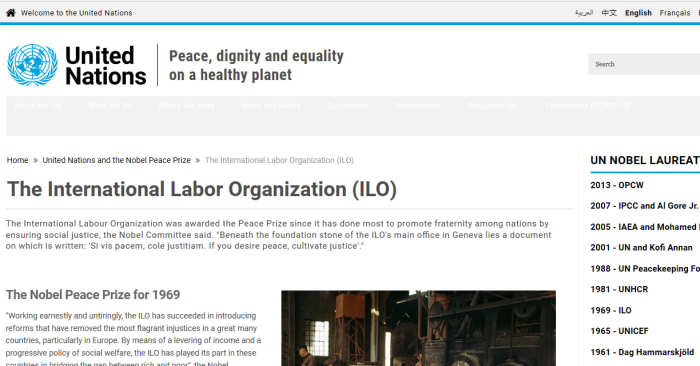
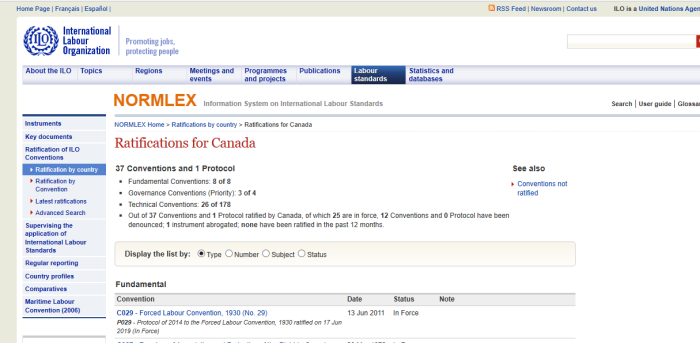
usmca.chapter.23.labour
Article 23.2: Statement of Shared Commitments
1. The Parties affirm their obligations as members of the ILO, including those stated in the ILO Declaration on Rights at Work and the ILO Declaration on Social Justice for a Fair Globalization (2008).
.
2. The Parties recognize the important role of workers’ and employers’ organizations in protecting internationally recognized labor rights.
.
3. The Parties also recognize the goal of trading only in goods produced in compliance with this Chapter.
The International Labour Organization (ILO) is a UN group which Canada, the U.S., and Mexico are all part of. In essence, this gives the UN a very large role in setting the agenda for work standards on the continent.
Article 23.14: Labor Council
1. The Parties hereby establish a Labor Council composed of senior governmental representatives at the ministerial or other level from trade and labor ministries, as designated by each Party.
.
2. The Labor Council shall meet within one year of the date of entry into force of this Agreement and thereafter every two years, unless the Parties decide otherwise.
.
3. The Labor Council may consider any matter within the scope of this Chapter and perform other functions as the Parties may decide.
.
4. In conducting its activities, including meetings, the Labor Council shall provide a means for receiving and considering the views of interested persons on matters related to this Chapter. If practicable, meetings will include a public session or other means for Council members to meet with the public to discuss matters relating to the implementation of this Chapter.
.
5. During the fifth year after the date of entry into force of this Agreement, or as otherwise decided by the Parties, the Labor Council shall review the operation and effectiveness of this Chapter and thereafter may undertake subsequent reviews as decided by the Parties.
.
6. Labor Council decisions and reports shall be made by consensus and be made publicly available, unless the Council decides otherwise.
.
7. The Labor Council shall issue a joint summary report or statement on its work at the end of each Council meeting.
This Council is to be made up of members chosen by the governments. There’s no indication that the public will have any say in choosing them. Decisions don’t have to be made public, which means we may never see what goes on. Meetings are to take place once every 2 years (as a default). Not very accountable.
UN SDGs International Labour Organization Partnered With
- BORDERLESS SUSTAINABLE INITIATIVES FORUM
- Economic inclusion and sustainable development of Andean grain producers in Ayacucho and Puno
- Equal Pay International Coalition
- FarmBiz Youth
- Global Partnership for Sustainable Development Data
- Improving transitions from school to work through engaging youth in policy dialogue
- Japanese Technical Cooperation Project for Promotion of Regional Initiative on Solid Waste Management in Pacific Island Countries (J-PRISM)
- Pacific Financial Inclusion Programme (PFIF)
- Pacific Youth Development Framework Partnership (PYDF Partnership)
- Solutions for Youth Employment (S4YE)
- Strengthening Women’s Ability for Productive New Opportunities (SWAPNO) in Bangladesh
- Sustainable Week
- United Nations Pacific Interagency Task Force on Noncommunicable Disease Prevention and Control (UN PIATF)
It’s beyond the scope of this article to go into each group that ILO partners with. However, take a look at the webpage to see for yourself what ILO does with the rest of its time. Anyhow, this is the group whose labour standards we must now comply with.
12. Ch #24: UNSDA Environmental Agenda
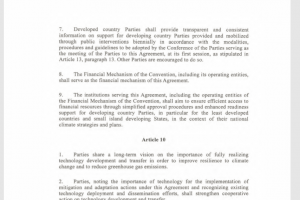
Article 24.1: Definitions
For the purposes of this Chapter:
environmental law means a statute or regulation of a Party, or provision thereof, including any that implements the Party’s obligations under a multilateral environmental agreement, the primary purpose of which is the protection of the environment, or the prevention of a danger to human life or health, through:
.
(a) the prevention, abatement, or control of the release, discharge, or emission of pollutants or environmental contaminants;
Article 24.2: Scope and Objectives
1. The Parties recognize that a healthy environment is an integral element of sustainable development and recognize the contribution that trade makes to sustainable development.
.
2. The objectives of this Chapter are to promote mutually supportive trade and environmental policies and practices; promote high levels of environmental protection and effective enforcement of environmental laws; and enhance the capacities of the Parties to address trade-related environmental issues, including through cooperation, in the furtherance of sustainable development.
A lot of the content here looks like it was cut and pasted directly from Agenda 2030. There are also references to pollution and emissions, which one can assume refers to the Paris Accord and the climate change scam. Quite the long read.
usmca.chapter.24.environmental.regulations
13. Ch #26: Focus On Competitiveness
Article 26.1: North American Competitiveness Committee
1. Recognizing their unique economic and commercial ties, close proximity, and extensive trade flows across their borders, the Parties affirm their shared interest in strengthening regional economic growth, prosperity, and competitiveness.
2. With a view to promoting further economic integration among the Parties and enhancing the competitiveness of North American exports, the Parties hereby establish a North American Competitiveness Committee (Competitiveness Committee), composed of government representatives of each Party.
3. Each Party shall designate a contact point for the Competitiveness Committee, notify the other Parties of the contact point, and promptly notify the other Parties of any subsequent changes. Recognizing the need for a comprehensive and coordinated approach to enhance North American competitiveness, each Party’s contact point shall coordinate with its relevant government departments and agencies.
usmca.chapter.26.competitiveness.committee
There is to be a committee to enhance competitiveness. In practice, it means a committee devoted to goods and services at the lowest possible cost. Certainly this group will ensure that countries aren’t able to enact any protectionist policies to aid their own people.
14. Ch #27: Anticorruption Measures
6. In order to prevent corruption, each Party shall adopt or maintain measures as may be necessary in accordance with its laws and regulations, regarding the maintenance of books and records, financial statement disclosures, and accounting and auditing standards, to prohibit the following acts carried out for the purpose of committing the offenses described in paragraph 1:
.
(a) the establishment of off-the-books accounts;
(b) the making of off-the-books or inadequately identified transactions;
(c) the recording of non-existent expenditure;
(d) the entry of liabilities with incorrect identification of their objects;
(e) the use of false documents; and
(f) the intentional destruction of bookkeeping documents earlier than foreseen by the law.
usmca.chapter.27.corruption
While these certainly are good things to prohibit, it’s unclear why this is being put into a trade agreement. It’s also ambiguous how there would be any real enforcement of such clauses.
15. USMCA A New Level Of Globalism
USMCA is touted as NAFTA 2.0, or the New NAFTA. However, much of its contents have nothing to do with trade, but enforcing other areas of society.
Chapter 2 (and elsewhere), make local protection impossible
Chapter 14 focuses on “investments”, which is extremely broad
Chapter 16 makes it easier to being people across the borders for work purposes. Touted as temporary, but we all know this isn’t the case
Chapter 17 allows for an unlimited number of workers
Chapter 19 restricts free speech protections online
Chapter 20 is uniform intellectual property laws
Chapter 22 undermines government agencies and organization
Chapter 23 forces compliance with ILO social justice agenda
Chapter 24 brings back all the environmental agendas
Chapter 26 focuses on competitiveness (lowest cost) over protectionism
Chapter 27 focuses on corruption.
Of course this is not all of USMCA’s content, but the more important parts. Canada, the U.S. and Mexico are signing away large parts of their (remaining) autonomy with this deal.
Like this:
Like Loading...
